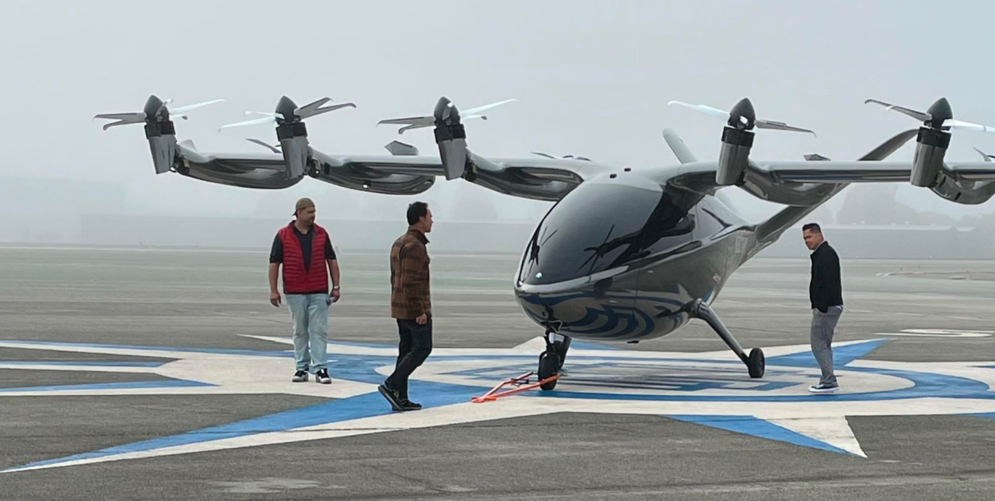
Archer, Joby and Lilium together spent almost $132 million in the third quarter on development of their electric vertical takeoff and landing air taxis.
The combined total for the first nine months of the year was more than $326 million as the startups ramped up work, aiming for certification by the end of 2024.
The figures are revealed in the first quarterly financial results released by the startups since each went public through a merger with a special-purpose acquisition company (SPAC). While the third-quarter results reveal a ramp-up in spending, all three companies say they remain on track to begin commercial services with the funding in hand as a result of the SPAC transactions.
Of the three, Lilium had the highest cash utilization, spending $56.6 million on R&D in the third quarter and $141.5 million in the first nine months of the year. The German startup completed its merger with Qell Acquisition in September, grossing $584 million, and had a cash balance of $529 million at the end of the quarter. The workforce has grown to around 750 people, and Munich-based Lilium expects its cash spending for the full year to be on target at $221 million.
The seven-seat Lilium Jet entered the preliminary design review phase in November, with first flight of a fully conforming prototype expected in 2022. The fifth-generation technology demonstrator has completed more than 25 flights since taking to the air in July, expanding the speed envelope to 46 mph. Lilium plans to relocate the test campaign to Spain, where the weather is more reliable, in mid-2022 and complete full transition from vertical to horizontal flight and full cruise speed there.
Other progress noted by the startup includes the decision by Florida’s Palm Beach County to approve the development by Ferrovial of a vertiport at Palm Beach International Airport for exclusive use by Lilium. This is the first of 10 vertiports that Ferrovial plans to build and operate for Lilium’s regional air mobility network in Florida. Lilium is also building out a German network and looking to use the networks of 25 vertiports in the UK and more than 20 across Spain that Ferrovial plans to build.
Joby had the second highest cash burn, spending $52.1 million on R&D in the third quarter and $140.3 million in the first nine months of 2021. The U.S. startup completed its merger with Reinvent Technology Partners in August, grossing about $1.2 billion, including an investment from Uber, and ended the quarter with a cash balance of just more than $1 billion. The startup incurred a net loss for the quarter of $78.9 million as it grew operations to almost 1,000 employees.
Joby has begun testing parts and systems for its production aircraft, with the first conforming prototype planned to fly in 2022. This includes tail spar load testing, battery drop testing, lightning strike and canopy bird strike testing. Construction has begun on an integrated systems test lab, initial pilot evaluation of the production cockpit design has been completed and the flight control computer has passed a high-risk electronic environment test, Joby says.
The startup is the first of the three to begin production operations, establishing a power train manufacturing line at its San Carlos, California, site and delivering the first electric propulsion unit for its test aircraft. A second automated fiber placement machine has been installed at the Marina, California, site, providing sufficient carbon-fiber layup capacity to support initial production.
Archer had a lower but growing cash utilization, spending $23.1 million on R&D in the third quarter and $44.6 million in the first nine months. The U.S. startup completed its merger with Atlas Crest Investment Corp. in September, netting $802 million in cash, and ended the quarter with $796 million cash in hand. Archer expects operating expenses of $35-40 million in the fourth quarter as it adds employees.
The startup has relocated its Maker technology demonstrator to a test center in California and anticipates the first unmanned hover flight in December. Archer is building a second Maker and plans to make its first full transition and cruise flight in the second half of 2022. The first conforming prototype of the larger, piloted four-passenger production aircraft is scheduled to fly in 2023.
Archer says it is in the final stages of selecting a production site and plans to begin construction in 2022, targeting completion in 2023. Full validation of the electric power train is also planned for 2023. The startup will also begin testing its mobile booking app in 2023 and anticipates receiving its FAA Part 135 operator’s certificate in 2024, paving the way to launch commercial operations.



